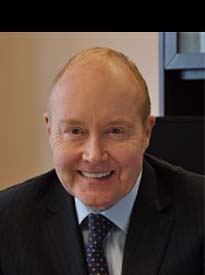
Since the temporary market setback at the pandemic’s onset, the wealth management business has sizzled, driven by surging equity markets and robust demand for wealth services. But competition has been stiff among dealers and their advisors to build and retain their client base to capture the anticipated wealth transfer to gen-Xers and millennials.
The advances and scalability of financial technology, and improved business practices and models, have enabled small and mid-sized firms and their advisors to compete in the market for leading-edge investment products, financial advice and a wide range of ancillary wealth services.
However, competitive success hinges on differentiation in a marketplace where investment products are commoditized or easily accessed by competing advisors and firms, driving portfolio returns to the industry mean.
Until recently, managed funds were a distinguishing factor across firms, in terms of investing techniques and managed assets. Now, large and small firms offer a full range of managed funds, both internally sourced and from third parties. Further, advisors and firms can now access alternative asset managed funds, including private equity, ESG bonds and real estate.
Most retail advisors and firms are focusing on financial planning to broaden the advisory platform. And most offer the full range of financial planning vehicles — advisor-directed financial planning, software and tools for interactive planning with clients, and estate planning often with outside expertise.
Some advisors and firms have developed clientele expertise, targeting family offices, ultra-high-net-worth clients and corporate executives. Many advisors and firms are focusing on client segments or client diversity, such as women and ethnic groups, and in some cases are raising the calibre of services to “high touch” advising, emphasizing client practice management and organizing operations into advisor teams to allocate and broaden specialized responsibilities and achieve more efficient administration to gain competitive edge. However, a new opportunity often means new advisors and firms step into the space to increase the competitive tempo.
The continued effort to differentiate wealth services brings the advisor back to the fundamentals of a deep relationship and close engagement with the client. This relationship goes beyond the regulatory obligation to know your client and extends to understanding the lifestyle needs that often impinge on finances, developing the related plans to respond to these dynamic financial and lifecycle needs, and participating in the associated decision-making. This deep understanding of the client clearly improves the calibre of advice and achieves the financial and lifestyle success of the client.
As this client engagement deepens, the client increasingly trusts the advisor. And, over time, the engagement becomes a differentiator and integral part of client decision-making.
The challenge for advisors, then, is to begin thinking about strategies and tactics to incorporate the client’s voice in efforts to deliver a personalized experience.
Ian Russell is a partner with Russell Deacon & Co., and the past president and CEO of the Investment Industry Association of Canada.
